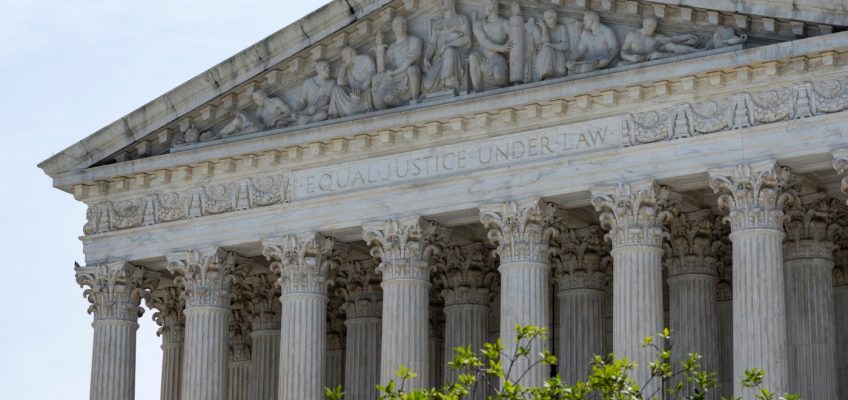The U.S. Supreme Court’s decision Friday to curb nationwide injunctions that challenge the Trump administration‘s policies left the fate of birthright citizenship — and other challenges California has mounted to White House policies — a bit unclear.
Here’s what the Supreme Court justices said in the birthright citizenship case:
Related Articles
Senate Republicans move to slash CFPB funding by half, risking hundreds of job cuts
A rundown of recent Trump administration vaccine policy changes
California governor sues Fox News over alleged defamation in story about call with Trump
Republican plan for nationwide private school vouchers deemed in violation of Senate rules
The government cuts key data used in hurricane forecasting, and experts sound an alarm
Fate of birthright citizenship order unclear
A divided Supreme Court on Friday ruled that individual judges lack the authority to grant nationwide injunctions, but the decision left unclear the fate of President Donald Trump’s restrictions on birthright citizenship.
The outcome was a victory for the Republican president, who has complained about individual judges throwing up obstacles to his agenda.
But a conservative majority left open the possibility that the birthright citizenship changes could remain blocked nationwide. Trump’s order would deny citizenship to U.S.-born children of people who are in the country illegally.
The cases now return to lower courts, where judges will have to decide how to tailor their orders to comply with the high court ruling, Justice Amy Coney Barrett wrote in the majority opinion. Enforcement of the policy can’t take place for another 30 days, Barrett wrote.
The justices agreed with the Trump administration, as well as President Joe Biden’s Democratic administration before it, that judges are overreaching by issuing orders that apply to everyone instead of just the parties before the court.
What is birthright citizenship?
Birthright citizenship automatically makes anyone born in the United States an American citizen, including children born to mothers in the country illegally. The right was enshrined soon after the Civil War in the Constitution’s 14th Amendment.
In a notable Supreme Court decision from 1898, United States v. Wong Kim Ark, the court held that the only children who did not automatically receive U.S. citizenship upon being born on U.S. soil were the children of diplomats, who have allegiance to another government; enemies present in the U.S. during hostile occupation; those born on foreign ships; and those born to members of sovereign Native American tribes.
The U.S. is among about 30 countries where birthright citizenship — the principle of jus soli or “right of the soil” — is applied. Most are in the Americas, and Canada and Mexico are among them.
Trump and his supporters have argued that there should be tougher standards for becoming an American citizen, which he called “a priceless and profound gift” in the executive order he signed on his first day in office.
The Trump administration has asserted that children of noncitizens are not “subject to the jurisdiction” of the United States, a phrase used in the amendment, and therefore are not entitled to citizenship.
But states, immigrants and rights groups that have sued to block the executive order have accused the administration of trying to unsettle the broader understanding of birthright citizenship that has been accepted since the amendment’s adoption.
Contributing: Associated Press and Southern California News Group


Leave a Reply